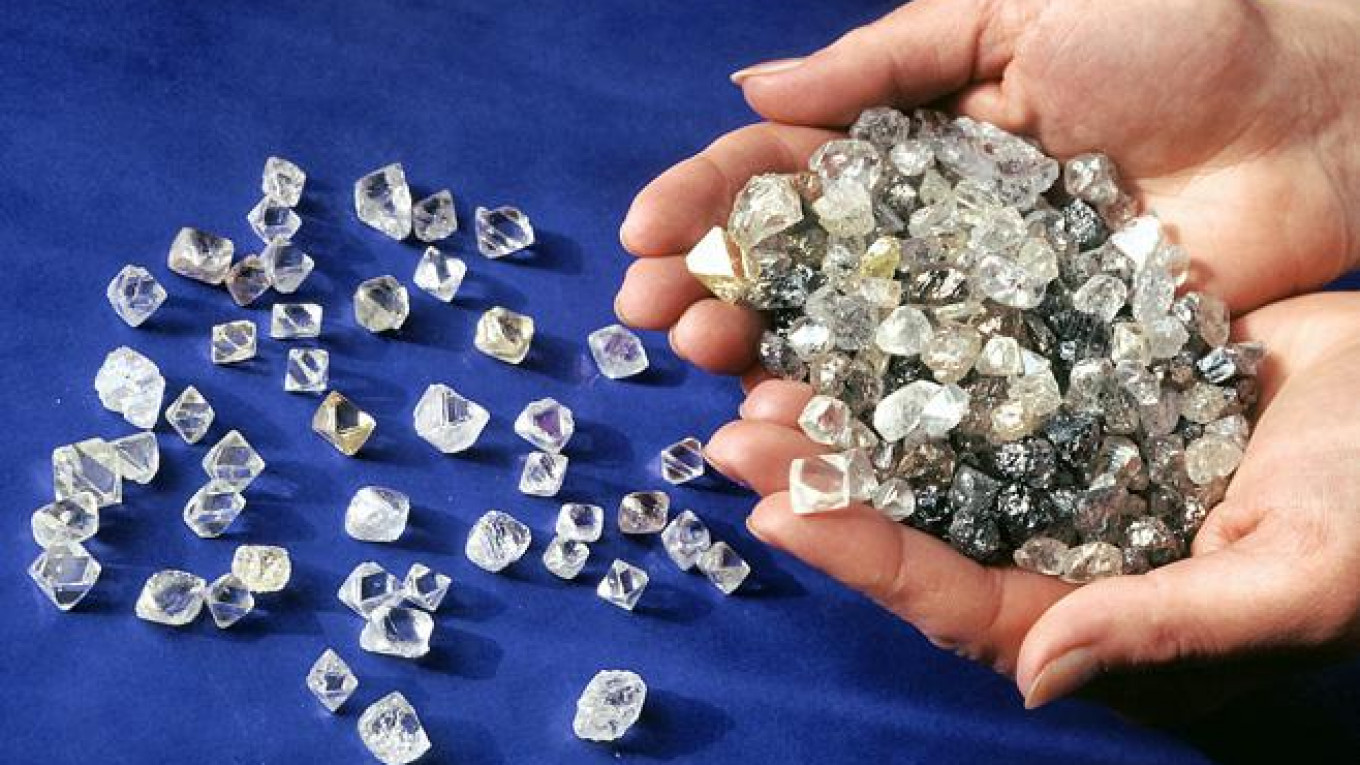Back in April, President Vladimir Putin was asked at a press conference why he planned to sell state companies just when the market was at bottom.
Putin’s reply was blunt: “We need the money.”
Russia was, after all, in a bind. A deep recession and plunging oil prices meant tax revenues were dwindling. Putin was unwilling to borrow to finance a growing budget shortfall. So his ministers drew up plans to privatize assets worth 1 trillion rubles ($15 billion).
The largest privatization since the 1990s, it would be enough to cover around two-fifths of the planned budget deficit of 3 percent of GDP.
Still, many had their doubts. Putin has never been keen to privatize. And he insisted that despite rock-bottom company valuations, there should be no sales at knockdown prices.
But on July 11, the first sale was completed. The government successfully sold a 10.9 percent stake in Alrosa, the world’s largest diamond miner, for 52.2 billion rubles ($816 million).
The price wasn’t the best. The shares went for 65 rubles ($1.01) each — nearly 4 percent cheaper than their price on the market. According to business newspaper Kommersant, the government had hoped for 71 rubles a share.
But considering the West’s sanctions on Russia and the country’s economic slump, it could have been worse. “I think it’s a reasonable purchase and price,” said Oleg Vyugin, chairman of Russia’s MDM Bank. “There is a limited number of Western investors on the market. And Russian buyers, as we know, don’t have big money,” he told The Moscow Times.
The sale attracted demand from around the world. Russian and European investors each bought about 35 percent of the shares, with Asian and Middle Eastern buyers purchasing a further 25 percent, said Boris Kvasov, a director at VTB Capital, a Russian investment bank that co-organized the sale.
The Russian Direct Investment Fund, a state-backed fund designed to foster foreign investment, facilitated as many as half of the deals by partnering with buyers, sources told Russian news agencies.
U.S. investors, however, bought only around 5 percent of the shares on offer, Kvasov told Bloomberg. The figure was far less than in previous Russian privatizations.
The sale signals that Russia is serious about selling. First Deputy Prime Minister Igor Shuvalov said Russia’s privatization program was on track, and stakes in oil producers Bashneft and Rosneft and shipbuilder Sovkomflot were on the way to market.
But continuing privatization is far from guaranteed. Bashneft and Rosneft are much larger than Alrosa, and the government “won’t get as much money as it wanted,” says Alexei Devyatov, chief economist at Uralsib Bank.
Officials have thrown doubt on some mooted sales, such as Aeroflot, the national airline, and dropped plans to sell a stake in VTB Bank.
Many of the planned privatizations surrender only minority stakes and leave the state with control of companies. But still, the government has shown dogged unwillingness to give up assets. Under Putin, the state’s share of the economy has inexorably increased — to 55 percent in 2015, according to a report by the Peterson Institute in Washington. In 2014, the government even renationalized Bashneft after sending its owner to jail.
The fate of the privatization program may come down to Putin’s point about money.
Oil traditionally supplies around half of Russia’s budget revenues. “If crude stays at $50 per barrel, they’ll probably sell,” says Natalya Orlova, chief economist at Alfa Bank in Moscow. “If it goes to $70 per barrel, they probably won’t.”
A Message from The Moscow Times:
Dear readers,
We are facing unprecedented challenges. Russia's Prosecutor General's Office has designated The Moscow Times as an "undesirable" organization, criminalizing our work and putting our staff at risk of prosecution. This follows our earlier unjust labeling as a "foreign agent."
These actions are direct attempts to silence independent journalism in Russia. The authorities claim our work "discredits the decisions of the Russian leadership." We see things differently: we strive to provide accurate, unbiased reporting on Russia.
We, the journalists of The Moscow Times, refuse to be silenced. But to continue our work, we need your help.
Your support, no matter how small, makes a world of difference. If you can, please support us monthly starting from just $2. It's quick to set up, and every contribution makes a significant impact.
By supporting The Moscow Times, you're defending open, independent journalism in the face of repression. Thank you for standing with us.
Remind me later.






